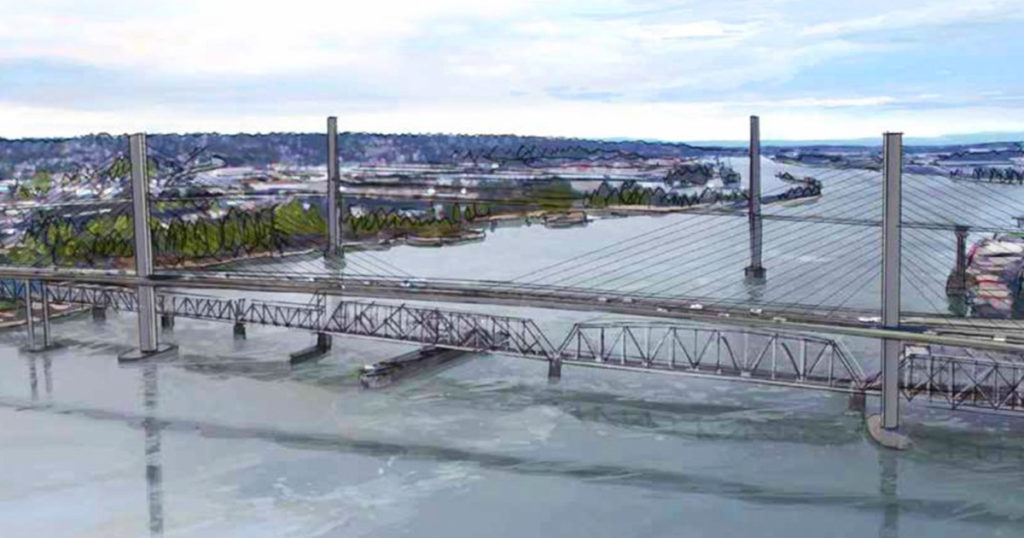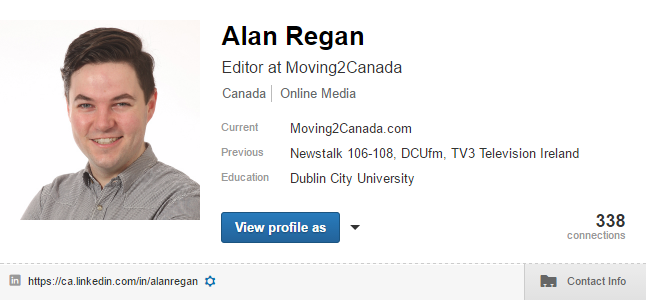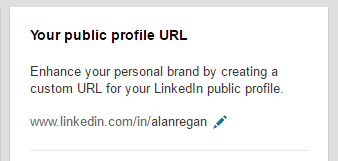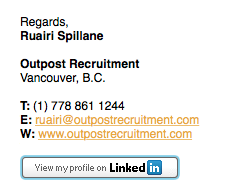Getting an interview simply means that you have provided yourself a platform to demonstrate your suitability for the role. The hard work starts here. Practice speaking about yourself out loud in front of friends as this will allow you to become comfortable, but most importantly prepare yourself to answer potential interview questions.
It’s your chance to shine. The biggest challenge with an interview is that there is a huge volume of information to prepare, and it’s hard to predict whether the interview will focus on personality, technical and personality / culture fit questions, or perhaps all three combined. Nailing the interview process is entirely in your hands. It’s easy to get your mind sharp on all potential permutations of questions and to be ready for a whirlwind interview.
The task is not to provide an answer for every question. Success means you have provided the best possible answer for every question. This means you have accurately understood the questions, addressed all potential solutions, and provided an answer that has a clear structure (introduction, main points, and a conclusion).
Being familiar with your weakness is the most savvy way to approach an interview. Below are two of the most common weaknesses we encounter with international candidates:
Immigration risk
Unless you are a Canadian citizen or permanent resident of Canada, you will need to address the issue of immigration risk. If you are an international candidate without local experience, then the interview panel will need to be convinced that you are planning to stay in Canada beyond 3-4 years. Otherwise, it’s not a smart investment for them.
Despite Canada being a diverse and multicultural country, employers are extremely conservative when it comes to hiring international workers on a temporary work permit. If you are a temporary work permit holder (e.g. IEC working holiday) then do some research on the process for applying for permanent residence so that the employer understands you. Your temporary work permit is the elephant in the room, so address the issue straight up from the start. Mention a temporary work permit instead of a “working holiday visa” and use the term “relocation” to add permanence to your term in Canada. The words you choose carry more weight than you may think. After all, an employer sees you as an investment for the company. Their goal is to hire, train, and retain an employee for the long term.
It’s encouraged that you have a good idea of how you may transition to permanent status in Canada once you have built up some Canadian work experience. You’ll be better prepared for that step, and your potential employer will have greater confidence that Canada is your long-term home. See the helpful links to Express Entry and the Canadian Experience Class immigration program here:
Lack of local experience
All countries like to do things their own way, and Canada is no different. Although construction is a global industry, Canadian employers will need to understand that you are committed to learning and adapting to the Canadian way. Construction methods, contracts and processes can be different between countries. Acknowledging that a learning curve exists and that it can take time to adjust is the best way to deal with this issue.
General advice on preparing for interview questions:
- Ensure you have researched the company and the role extensively. If you are new to the country, you need to demonstrate an ability to get up to speed quickly.
- If new to Canada, prepare to speak about your motivation for moving to Canada and how long you plan to stay. Do not mention “working holiday”, “temporary work permit” or “gap year”. Instead, mention “I relocated to Canada for the quality of life (example)”. Companies want to hire someone who is focused on building a career with the company. Ensure that you display you are determined to stay in Canada long term by proving yourself worthy to employers.
- Many interviews will begin with the prompt “tell me about yourself”. Prepare a two-minute overview of yourself that takes your interviewers through your resume and displays your suitability for the role in question. Practice this out loud over and over again. First impressions last, so this is a short slot to show your employer how competent you are.
- Do not use phrases like “as you can see”. Proceed as if they have never seen your resume.
- Write out answers to all potential interview questions and ensure the answers roll off your tongue. Your ability to plan and prepare is being examined, so do your research.
- Sometimes interviewers will ask planned interview questions to test your ability to think on your feet. Listen carefully to each question, always pause to plan your answer, and only speak when you know exactly what points you are going to make.
- Focus on having an introduction, a body, and a summary for each answer.
- Speak slowly. It’s easy to rush when nerves take over, but slowing down will ensure your brain has a chance to work out what to say next. Additionally, it will ensure your answers to interview questions are fully understood. Always think before you speak.
- Answer concisely, but try to avoid yes/no answers.
- Don’t worry about pausing before you answer — it shows you can think before answering.
- Don’t worry about admitting that you don’t know something, but don’t say it too often. You can admit that you don’t know the answer, but you will follow up with them once you verify the information.
- Be prepared for abstract hypothetical interview questions that you may not have prepared — take your time, and think before you speak.
- Be prepared for unexpected interview questions.
- Keep the conversation moving.
- Speak up when answering interview questions.
- Remember to smile and make eye contact with the interviewers — this will show confidence in your communication skills.
Typical interview questions
1. Tell me about yourself
Keep your answer to one or two minutes. Don’t ramble. Use your Professional Summary on your resume as a starting point, as this should cover your education, work experience, skills, and career objectives.
2. What do you know about our company?
Do your homework before the interview. Spend some time researching the company by exploring the company website and by researching the backgrounds of key employees on LinkedIn. Prepare for interview questions on this topic. Find out as much as you can: products, size, income, reputation, image, people, skills, history, and philosophy. Be able to demonstrate an informed interest. Let the interviewer tell you about the company as well. Ask any questions relating to the company.
3. Why do you want to work for us?
Don’t talk about what you want, first talk about their needs. You would like to be part of a specific company project; you would like to solve a company problem; you can make a definite contribution to specific company goals.
4. What could you do for us? What can you do for us that someone else can’t do?
Refer to past experiences that show you’ve had success in solving previous employer problems that may be similar to those of the prospective employer. You could bring in some aspects of international experience, for example use of specific software, BIM experience, dealing with different cultures, or exposure to different languages.
5. What do you find most attractive / least attractive about the job offered?
List three or more attractive factors and only one minor unattractive factor.
6. Why should we hire you?
Because of your knowledge, experience, abilities, and skills. Elaborate by using specific examples.
7. What do you look for in a job?
This is an opportunity to use your skills, to perform, and to be recognized.
8. Please give me your definition of a {the position for which you are being interviewed}.
Keep it brief. Give a definition related to actions and results.
9. How long would it take you to make a meaningful contribution to our company?
Not long at all, you expect only a brief period of adjustment. You are a fast learner, adapt well to surroundings.
10. How long would you stay with us?
Focus on showing your employer that you are in Canada for the long term. Tell them that you intend to stay and build your career here in Canada. Show that you are dedicated and committed, especially if experience demonstrates that you can point to a previous long stint with an employer (e.g. five or more years).
Personality-based interview questions
11. Do you generally speak to people before they speak to you?
Depends on the circumstances.
12. What was the last book you read? Movie you saw? Sporting event you attended?
Talk about books, sports, or films to show that you have balance in your life. Interview questions like this give a glimpse into your personality, so try to be positive.
13. What is the toughest part of a job for you?
Be honest. Remember, not everyone can do everything.
14. Are you creative?
Yes, and give examples.
15. How would you describe your own personality?
Balanced.
16. Are you a leader?
Yes, and give examples.
17. What are your future goals?
Avoid “I would like the job you advertised”. Instead, give long-term goals. For example, outline the role you are you looking to achieve in the future (e.g Project Manager / Commercial Manager).
18. What are your strong points?
Give at least three and relate them to the company and job you are interviewing for.
Career goals — interview questions
19. If you could start your career again, what would you do differently?
Don’t give the impression of being regretful.
20. What career options do you have at the moment?
Relate these to the position and industry.
21. How would you describe the essence of success? According to your definition of success, how successful have you been so far?
Think carefully about your answer to these interview questions, and relate it to your career accomplishments.
Your work habits and style
22. If I spoke to your previous manager, what would he or she say are your greatest strengths and weaknesses?
Emphasize skills — don’t be overly negative about your weaknesses. It is always safer to identify a lack of a skill as an area of improvement rather than a shortcoming.
23. Can you work under pressure, deadlines, etc?
Yes, it’s a way of life in business.
24. How have you changed the nature of your job?
Improved it, of course.
25. In your present position, what problems have you identified that had previously been overlooked?
Keep it brief, don’t boast.
26. Don’t you feel you might be better off in a different size company? Different type of company?
Depends on the job. Elaborate slightly.
27. How do you resolve conflict on a project team?
First you discuss the issues privately.
28. What was the most difficult decision you ever had to make?
Try to relate your response to the prospective employment situation.
29. In your current or last position, what are or were your five most significant achievements?
Refer to key achievements already identified on your resume.
30. How to answer the ‘your biggest weakness’ interview question
The interviewer won’t be impressed with classics like “I’m a perfectionist,” “I’m a slave to my job,” or “I’m a workaholic.”
You’re sitting face-to-face with the person you most want to impress — your prospective boss — and he or she is asking you, “What is your greatest weakness?” This is probably one of the most difficult and frequently asked interview questions, so it’s smart to be well prepared with a good answer. Here are some strategies to consider when preparing your answer to interview questions about ‘your biggest weakness’.
Interviewers really don’t care what your weaknesses are. The interviewer simply wants to see how you handle the question and what your answer may indicate about you. They also want to see how well you’ve prepared for this question, as you should know it is coming.
Be honest, and answer it in a way that reflects positively on you. Mention a genuine weakness, but not one that will disqualify you in the interview.
“My area for improvement is…”
Highlight a skill that you wish to improve upon and, more importantly, describe what you are proactively doing to enhance your skills in this area. Being able to say you are actively trying to change your weakness into a strength is a good idea. For example, “The area I would like improve on is public speaking, and I have just enrolled in a Toastmasters course.”
Highlighting an area for improvement demonstrates that you are self-aware. Describing what you are doing about that weakness demonstrates that you are proactive and seek to improve your talents.
Name weaknesses that have little to do with your prospective job. You can nominate a skill you may not actually need on the job, like languages, for example.
Avoid the blatant, overused ones. Examples include “My problem is I work too hard” or “Perfectionism” or “I am a workaholic incapable of taking lunch breaks.” With such weaknesses, who needs strengths? A few employers eat this stuff up, but most will roll their eyes and send you packing.
31. Behavioural interview questions
Be sure to have examples dealing with conflict, stressful situations, achievements, initiative, teamwork, and leadership. Some interviewers choose not to ask the “weakness” question directly but to couch it in terms of a past experience.
Behavioural interview questions that draw out deficiencies are: “Tell about the biggest mistake you made in your career and what you learned from it,” or “Give an example of when you disagreed with your boss or co-worker and how you handled it.”
Choose your weakness before the interview. Limit your answer to one weakness and say what you did in order to overcome it. Overcoming a weakness is actually developing a strength.
Being able to discuss your weaknesses also indicates an ability to handle constructive criticism without becoming defensive. It shows a willingness to grow personally.
Other common interview questions:
32. Why are you here?
33. If you had only one way to describe yourself, what would it be?
34. When have you failed?
35. What’s the one accomplishment that you are most proud of? Why?
36. What qualities in your co-workers bother you most? What do you appreciate most?
37. How do you take advantage of your strengths? How do you compensate for your weaknesses?
38. If I were to ask your current boss what your greatest strength is, what would he or she tell me?
39. If I were to ask you current boss to tell me one thing you do that drives him crazy, what would he or she tell me?
40. What’s one thing you would like to do better? What’s your plan for improving?
41. What changes have you made in working with others to become more effective at work?
42. What do you think are the most important attributes of successful people? How do you rate yourself in those areas?
43. How do you make decisions?
44. If you were limited to just one person to get advice and help from, which person would you choose? Why?
45. Tell me about a work incident in which you were totally honest, despite a potential risk or downside.
46. What would you do if you made an important business decision and a co-worker challenged it?
47. Describe a crisis you faced at work. What was your role? How did you resolve it? What were the results?
48. Describe a time when you were asked to do something you weren’t trained to do. How did you handle it?
49. Describe the boss who would get the very best work from you?
50. What will make you love coming to work here every day?
51. What would you do if management made a decision you didn’t agree with?
52. What is there about this opportunity that most excites you?
53. What is your greatest fear about this opportunity?
54. If you get the job, how could you lose money for me?
55. Assume that you come to work here. One year from now you go home one Friday evening thinking that accepting this job was the best thing you ever did. What happened during the year for you to feel that way?
56. Is there any question that I haven’t asked you that I should?
57. How do you feel about potential travel from time to time as the business demands? (e.g. out of province or country / remote job site)?
“Is there anything you would like to ask us?” Questions to ask the interviewer.
It is a good idea to have questions prepared for the end of the interview. It will show interest in the role and company. It is not advised to ask about the package or salary at this stage. You should focus more on the organization and the role itself.
Question examples may include:
– What are the main objectives of the role?
– How does the company expect these objectives to be met?
– What obstacles are commonly encountered in reaching these objectives?
– What is the desired time frame for reaching these objectives?
– What is the career progression like with the job?
– May I contact you with further questions?
– What do you enjoy most about working for the company?
– What’s the company culture like?
– What are the biggest challenges for this position?
– How would somebody like me contribute to the company?
– What type of educational background do you look for in your employees?
– What are the skills and attributes you value most in your employees?
– What types of training do you offer?
– What are the opportunities for advancement?
– What does X mean for the company?
Preparing for an interview
So, you’ve secured an interview with an employer in Canada. It’s your chance to shine, and you want to make the best possible impact. All it takes is a little effort to ensure that you impress the interview panel. This article is aimed at helping you prepare mentally for the big day.
Preparation
- Research the company inside out. Use all possible resources (Google search, LinkedIn, company website, current employees, your recruiter, etc.) to learn as much as you possibly can about the company.
- Know the interview panel. Confirm the details of who you will be meeting, as this will help preparations.Detailed research should give you some insights into each person you will be facing in the room. Get familiar with each of the interview panel members using LinkedIn, company bio, and other social media profiles for clues on their interests, personality, and their role/position within the company. The interview can take different directions depending on whether your interview panel consists of:
- A member of Human Resources – expect broader behavioral questions and questions on fit and knowledge of company values /culture.
- The hiring manager – he or she may focus more on your past experience and your technical abilities to meet the requirements of the role.
- A senior executive – he or she may focus on high-level questions such as your career aspirations and overall fit within the company.
- Have relevant questions prepared on some of the following topics:
- Specifics of the role
- Recent events at the company
- Company performance
- Personal development
- Corporate values
- Dress code – if in doubt, always overdress versus underdress. Do not take an unnecessary risk on dress code For office-based roles, a suit is always your best bet, but any smart business attire will work. For site-based roles, smart business attire is best.
- Research the location of the interview and ensure you verify logistics around getting to the interview on time. Do a test run if necessary, particularly if the interview is in a neighbourhood that you are not overly with. Traffic, delayed buses, and incorrect advice from Google Maps are not valid excuses. Being late or arriving gasping for breath at the exact moment the interview is due to begin leaves a poor first in-person impression.
- Print off a few copies of your resume to bring with you. Members of the interview panel should not have to share a copy.
- Research all possible interview questions you may be asked (see extensive list above). The key to nailing an interview is that ideally you should have considered the best possible answer to each question. Success isn’t about blurting out what comes into your head, it’s about being able to provide a concise answer that best demonstrates your skills and abilities. This can only be achieved via practice.
- Bring business cards. Personal branding is important, so don’t be afraid to get business cards made up so you can offer your business card, but most importantly receive the interviewers’ contact information
- Ensure you are prepared to look your best, with no last minute crisis on the morning of the interview. Do you need a haircut / belt / shoe polish / shave?
On the day of your interview
- Pack a pen, notebook, additional notes, business cards, and your resume.
- Dress to impress.
- Arrive early. Plan to get to your location at least 30 minutes before the interview. Grab a coffee nearby if you are too early to approach reception (decaf if you’re the type to get jittery with a hit of caffeine).
- Best avoid turning up at reception more than 15 minutes early.
- Be on your best behavior with the receptionist. Don’t sit there fumbling on your phone. Read some company literature or ask the receptionist some questions if he or she is open to chatting with you.
In the interview
- Approach each panelist with a smile, a firm handshake, and eye contact.
- Be prepared for some small talk as you are led to the interview room or waiting on arrival of another interviewer. Potential topics: Weather, location of office, recent company news.
- “Tell me about yourself” – this is the glorious icebreaker moment when you define the tone of the interview. Refer to your Interview Questions article for more insights. This is your 30-second elevator pitch. Be ready to nail this with confidence. Keep it brief.
- Use your pauses wisely. Gathering your thoughts is a crucial skill of leaders. When nervous, we often rush to answer questions. Take at least 2-3 seconds to reflect on every question, regardless of whether you know how to answer or not. You will come across as calm and measured.
- Be wary of your body language while you sit in the room. Keep things simple. No dominant poses, just sit upright and avoid folding your arms or fumbling with your pen.
- Smile periodically, when appropriate, and maintain eye contact as you speak with the panelists. Vary your attention accordingly with each panelist.
- Manage your emotions. The interview panel’s job is to get to know you so they may ask questions rapidly, stare cold-faced, or interrogate you slightly so they can get to know you better. Be ready for this, identify it, and manage you response. Don’t take the bait if they use negative tones or ask probing questions to test simulate a difficult client situation.
- Take notes. Remember, you are keen to make the best possible decision, so don’t rely on remembering every detail of an interview.
- Listen for clues in language and tone from the interview panel. If the interview involved discussions around salary expectations, potential start dates, or the panelists spend 5-10 minutes trying to sell you on why you need to work for them, then it’s possible you have performed very well.
- Gather as much information as you can. If you still have a burning question you forgot to ask earlier in the conversation, then bring it up.
- Ask for feedback: “Based on our discussion to date, do you feel like I would be a good fit for this role?” Not always possible, but it’s worth asking!
- Ask about next steps.
- Ask for business cards (if not provided at beginning of interview) so you can send a “thank you” email.
- Show gratitude to each member of the interview panel.
After the interview
- Contact your recruiter (if applicable) as soon as possible so you can discuss how things went.
- Send a “thank you” email (if appropriate i.e. you have their contact details, there is an invitation to continue to conversation and your recruiter has given the green light to communicate directly) to each member of the interview panel.
- Seek feedback via your recruiter or directly.
Some quick notes on remote interviews
The above information assumes an in-person interview scenario, but an increasingly common format is for a candidate and potential employer to engage in a telephone or video interview.
Many of the above points are also applicable for interviews conducted remotely, but here are some additional tips to guide you towards a successful interview.
Telephone Interview
- Find a quiet location with no distractions.
- For this exam, you can bring your notes so there is no excuse to being adequately prepared.
- It’s crucial to pause before answering questions, so you avoid speaking over the other person.
Video Interview
- Ensure you are online at least a few minutes before the interview is due to begin, and that you have tested your internet connection if you are not in a familiar location.
- Allow for delays, so try to pause before answering questions and not cut in on the interviewer when he or she is speaking.
- Ensure you have good lighting sound quality.
- Dress smartly.
- Remember to smile periodically and engage by looking at the camera when you are speaking.












